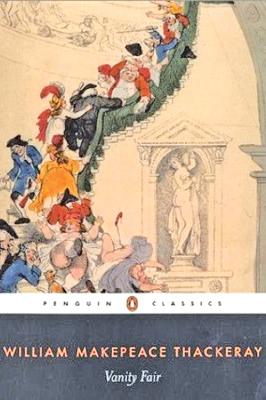
 The novel Vanity Fair by William Makepeace Thackeray is set in mid-nineteenth century England. It tells the story of Becky Sharp and Emmy Sedley. It also alludes to the Napoleonic War and the Battle of Waterloo. Becky is the anti-heroine in the novel because she is an evil, ruthless, manipulative, amoral, social climber who entices men for monetary gain. Emmy in contrast is honest, faithful, sweet natured and gentle.
The novel Vanity Fair by William Makepeace Thackeray is set in mid-nineteenth century England. It tells the story of Becky Sharp and Emmy Sedley. It also alludes to the Napoleonic War and the Battle of Waterloo. Becky is the anti-heroine in the novel because she is an evil, ruthless, manipulative, amoral, social climber who entices men for monetary gain. Emmy in contrast is honest, faithful, sweet natured and gentle.
At the beginning of the novel, Becky tries to entice Emmy's wealthy brother Joseph Sedley, but her attempts fail. She then finds employment as a governess and marries Rowden Crowley, the son of her employer Sir Pitt Crowley. Becky destroys the life of her husband Rowden by getting him arrested for debt. Becky also ensnares Joseph Sedley later on in the novel and murders him for his life insurance.
Emmy marries George Osborne who dies in the Battle of Waterloo, but finds love again with William Dobbin. The novel paints a vivid picture of evil through the character of Becky Sharp who ruthlessly destroys the lives of innocent people for financial gain. The novel is universal and it is relevant even in the 21st century because it provides a deep psychological insight into the destructive nature of evil.
